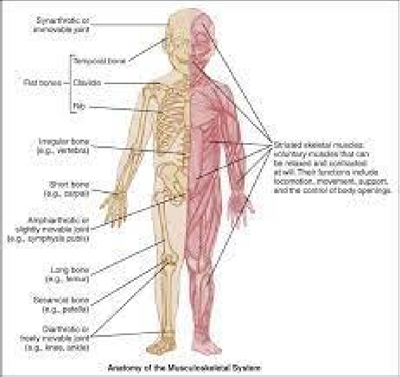In caring for a child with an open fracture, the nurse should carefully assess for
osteoarthritis.
epiphyseal disruption.
infection.
periosteum thickening.
The Correct Answer is C
When caring for a child with an open fracture, the nurse should carefully assess for signs and symptoms of infection. An open fracture refers to a fracture where the bone is exposed through the skin, creating a direct pathway for microorganisms to enter and cause infection. Infection is a significant concern in open fractures and can lead to serious complications if not identified and treated promptly. Signs of infection may include increased pain, swelling, redness, warmth, purulent drainage, fever, or systemic signs of infection such as elevated white blood cell count.
Osteoarthritis in (option A) is incorrect because it, is not an immediate concern in the care of a child with an open fracture. Osteoarthritis refers to degenerative joint disease that typically develops over time and is not directly related to the acute management of an open fracture.
epiphyseal disruption in (option B) is incorrect because it, refers to an injury involving the growth plate (epiphyseal plate) that can affect bone growth and development. While it is a potential concern in fractures that involve the growth plate, it is not specific to open fractures and may not be an immediate priority in the initial assessment of an open fracture.
periosteum thickening in (option D) is incorrect because it, may occur in response to injury and fracture healing, but it is not specifically associated with open fractures and is not a primary focus in the initial assessment of an open fracture.
Nursing Test Bank
Naxlex Comprehensive Predictor Exams
Related Questions
Correct Answer is B
Explanation
Precocious puberty is defined as the onset of puberty before the age of 8 in girls and before the age of 9 in boys. However, it is important to note that the exact age at which puberty is considered precocious can vary slightly based on different guidelines and individual variations.
Boys: 11 years; girls: 9 years in (option A) is incorrect because it, is close to the general age range, but it is slightly earlier than what is commonly considered precocious puberty.
Boys: 10 years; girls: 9 1/2 years in (option C) is incorrect because it, is also close to the general age range, but it is not as commonly recognized as the age for precocious puberty.
Boys: 9 years; girls: 8 years in (option D) is incorrect because it, is significantly earlier than the usual age for precocious puberty. Puberty occurring at this age would be considered very early and may warrant further evaluation.
Correct Answer is C
Explanation
Infants and children have open growth plates, also known as epiphyseal plates, at the ends of
their long bones. These plates are responsible for bone growth and are not fully fused until
the child reach skeletal maturity. Due to the presence of open growth plates, infants and
children are more prone to fractures because their bones are still developing and are less
dense than those of adults.
Their bones have less blood flow in (Option A) is incorrect because cchildren’s bones
actually have a greater blood flow compared to adults. This increased blood flow supports the
rapid growth and development of bones in children.
Growth occurs in children as a result of an increase in the number of muscle fibers in (option
B) is incorrect because ggrowth in children occurs primarily due to the elongation and
thickening of existing muscle fibres, not an increase in their number. This option inaccurately
suggests that children's muscles increase in fibber count to facilitate growth.
Because soft tissues are resilient in children, dislocations and spirals are less common than in
adults in (Option D is) incorrect. While soft tissues may be more resilient in children, it does
not mean that dislocations and sprains are less common than in adults. In fact, children's
ligaments and joint structures are still developing and may be more susceptible to injuries
such as sprains and dislocations compared to adults.

Whether you are a student looking to ace your exams or a practicing nurse seeking to enhance your expertise , our nursing education contents will empower you with the confidence and competence to make a difference in the lives of patients and become a respected leader in the healthcare field.
Visit Naxlex, invest in your future and unlock endless possibilities with our unparalleled nursing education contents today
Report Wrong Answer on the Current Question
Do you disagree with the answer? If yes, what is your expected answer? Explain.
Kindly be descriptive with the issue you are facing.
